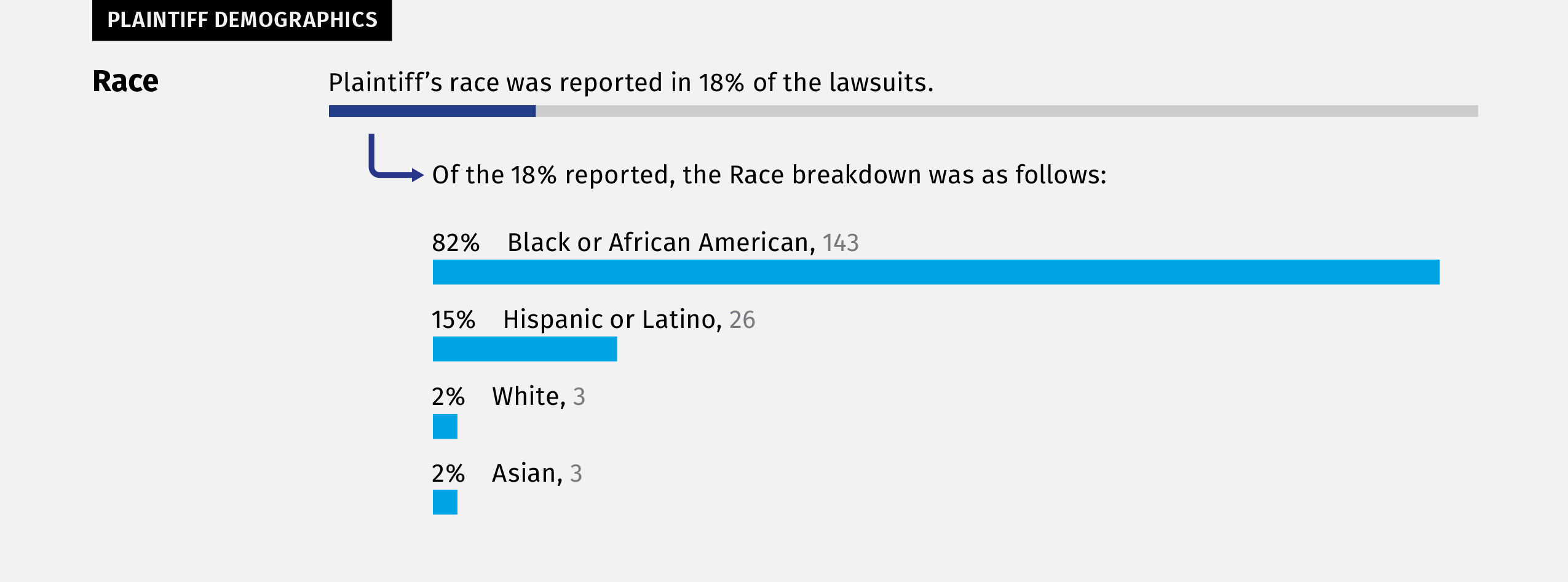Open Data Projects Are Fueling the Fight Against Police Misconduct
- by 7wData

a 16-year-old foster child from Far Rockaway, New York, had no criminal history when he was arrested in September, accused of having pulled out a gun and fired one shot in the air. Even though he had no priors and no relatives who could post bail, a judge set the amount at $100,000, and as he sat in jail for over a month, the boy lost his spot at the foster home where he had been living.
Seda, a Legal Aid attorney representing adolescents charged as adults in Queens, thought the allegations against her client were dubious and was looking for a way to get him out on bail. That’s when she decided to look into the officers named in the complaint against him. What she discovered stunned her.
The arresting officer, she learned, had been sued several times, and in the 1990s, he had been part of a group of officers working a narcotics operation that was accused of planting drugs on people and stealing drugs from suspects. Some of the officers went to trial and were convicted on felony charges, but most settled, costing the city some $1.2 million in damages to their victims. The officer she was researching was acquitted in court, but he had been named in connection with at least nine separate misconduct cases and had settled at least two, she told The Intercept.
Intrigued, Seda looked into the second officer, a sergeant who claimed he had watched her client pull out a gun and shoot it. He was also named in a pending lawsuit, in which a driver alleged the officer had stopped him, assaulted him, and arrested him with no legal justification.
“I thought, wow, that’s outrageous. Two cops in one case that are dirty,” Seda said. When she looked into the third officer, another sergeant who said he had found a gun on the street after her client ran, she was almost expecting to find something.
And in fact, that officer had also been sued, for assaulting a young black man moments after he walked out of his sister’s house. That lawsuit alleged the officer had thrown the boy to the ground and “roughed him up” before arresting him and taking him to the police precinct, also without legal justification. The boy was never charged with anything — but his family sued the city, demanding $100,000 in damages.
The accusations against the officers didn’t automatically imply their guilt in those cases, Seda said, but they certainly raised red flags.
Seda took her findings to a judge and argued that they undermined the credibility of the officers in question — and he promptly dropped her client’s bail and released him until trial. But only months earlier, the case might have played out quite differently.
In the past, when Seda wanted to learn more about an officer connected to one of her cases, she would scour legal databases and news archives in search of any relevant information. If she somehow knew an officer’s history would matter to the case, she might file a public records request for complaints filed against him or try to subpoena public agencies for that information — a cumbersome process for a public defender handling dozens of cases, and one with no guarantee of success. “It would have been very hard and it would have taken months,” she said. “It may have never happened.”
Most police misconduct goes unreported, particularly in less extreme cases and in more disenfranchised communities, but complaints filed with police departments and civilian review boards, as well as lawsuits, can point to significant histories of abuse tied to specific officers and precincts. In most cases, however, a citizen who becomes the victim of police abuse has next to no way of knowing if that officer is a repeat offender or has a history of targeting certain people, say, or sexual harassment.
As is the case with most police departments across the country, the NYPD does not disclose internal disciplinary records to the public.
[Social9_Share class=”s9-widget-wrapper”]
Upcoming Events
Shift Difficult Problems Left with Graph Analysis on Streaming Data
29 April 2024
12 PM ET – 1 PM ET
Read MoreYou Might Be Interested In
Why open data doesn’t mean open government
13 Mar, 2017Demand for open data in China is gaining traction despite the country’s traditionally closed approach to government. Although there’s no …
How Ghent is using the semantic web to connect data and meaning
27 Mar, 2018Linked open data on a semantic website might seem distant from the daily operations of local government, but in Ghent …
A Snapshot of Current Trends in Visualization
22 Mar, 2017Visualization is the study of the transformation of data to visual representations. These visual elements are then used to gain …
Recent Jobs
Do You Want to Share Your Story?
Bring your insights on Data, Visualization, Innovation or Business Agility to our community. Let them learn from your experience.
Privacy Overview
Get the 3 STEPS
To Drive Analytics Adoption
And manage change




